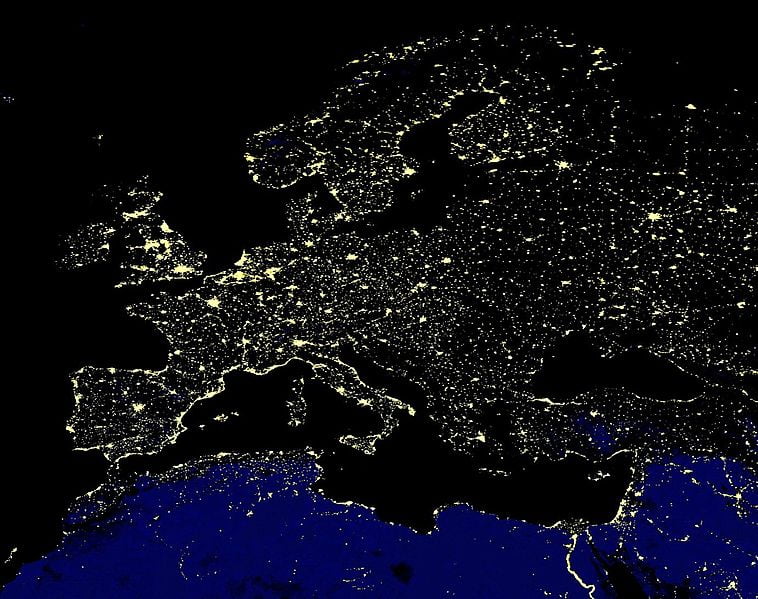
A leaked draft version of RePower EU, the policy strategy designed to liberate the European Union from ties to Russian fossil fuel imports, includes no mention of energy storage.
The draft, seen by Energy-Storage.news, is by no means a final version of the document but is thought to be intended for publication on 18 May.
In March, the European Council of EU leaders agreed that there was an urgent need to rapidly reduce dependence on Russian fossil fuels, particularly gas. The plan that is now being put together will do this by “fast forwarding the clean transition and joining forces to achieve a more resilient power system and a true Energy Union,” the draft said.
The EU believes the Fit for 55 package – which will commit EU countries to reducing greenhouse gas (GHG) emissions 55% by 2030 and was already being put in motion before the Russian invasion of Ukraine began more than 70 days ago – would go some way to achieving these goals. But it has recognised that more needs to be done in both the short and medium term.
For example, Fit for 55’s energy efficiency measures will reduce gas consumption across EU Member States by 30% by 2030.
RePower EU calls for much greater action on deploying renewable energy and related smart energy technologies, like heat pumps and hydrogen electrolysers. It would increase the Renewable Energy Directive target from 40% to 45% by 2030, equivalent to 1236GW of installed renewables capacity, which is a step up from the 1067GW targeted through Fit for 55.
Yet alongside this push for a “massive” renewable energy scale-up, it also focuses heavily on diversifying import sources of fuels through a voluntary joint purchasing platform for gas, LNG and hydrogen.
The leaked draft mentions the word “storage” several times – but this is purely in the context of ensuring natural gas storage resources are sufficient, alongside some mention of hydrogen storage.
Lack of storage strategy was already problematic before RePower EU
While the document seen by Energy-Storage.news has been leaked ahead of intended publication date, it is no secret that energy storage has so far been largely absent from policy makers’ discussions around RePower EU.
The European Association for Storage of Energy (EASE) already urged the European Commission to include consideration of batteries, mechanical and thermal storage technologies in its plans back in April, penning an open letter together with other trade groups.
Earlier this week Energy-Storage.news published comments from EASE’s secretary general, Patrick Clerens, who said that the massive rollout of renewable energy required will simply not be possible without adequate energy storage. Roughly 190GW of storage by 2030 will be necessary, EASE modelling has found, far beyond an installed base of about 60GW today.
Clerens also said in the interview that the EU’s modelling of its future energy system is largely modelled on outdated assumptions, which still consider thermal power plants as the cornerstone technology for balancing peaks in energy demand.
In fact, energy storage’s absence from EU strategies was already considered problematic by EASE members and other clean energy advocates long before the Russia-Ukraine crisis accelerated the call for energy independence. The EU’s Green Deal package had a similarly gaping energy storage-shaped hole, and the continental trade group had argued for its inclusion there, earlier this year, particularly for a lack of consideration of long-duration storage.
Yesterday, Florian Mayr, partner at Apricum, a specialist financial advisory group focused on cleantech, said that while RePower EU looked set to contain many “great things, like more renewable energy, more energy efficiency, more hydrogen and more heat pumps,” energy storage is a “missing puzzle piece” which would complete the picture.
“Can you spot what’s missing here? What’s wrong with that picture? That is energy storage. There will be no expansion of renewable energy to the extent that is announced, without providing the required flexibility the energy storage can provide – flexibility on all levels,” Mayr told Energy-Storage.news at the ees Europe event taking place in Munich, Germany, this week.
Mayr delivered the opening address at the ees Europe conference event on Tuesday, in which he called the Russian-Ukraine war as a “catastrophe on so many levels,” and a “big shock” which highlighted Europe’s dependence on fossil fuel imports.
Running in parallel with that is the climate change crisis. But both Mayr and Clerens said it is positive that not only have politicians decided to act quickly on the issue of fossil fuel imports, but that they have realised Europe has abundant sources of “indigenous” energy in the form of renewables, Clerens said.
German finance minister Christian Lindner even dubbed renewable energy as “freedom energy” earlier this year and the phrase was heard repeated many times at the Intersolar Europe / ees Europe events during the week.

